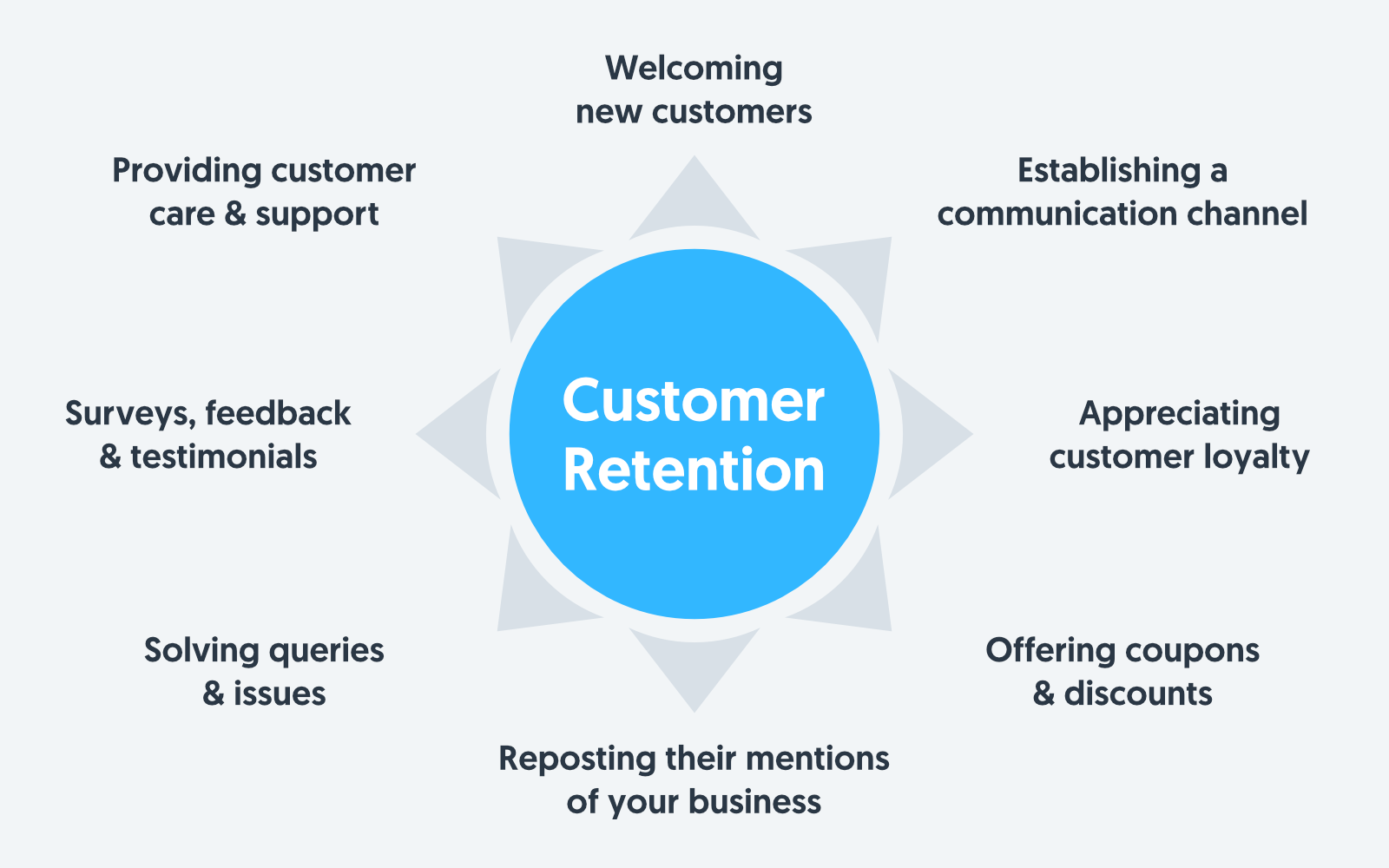Every year, just like all aspects of business, new marketing trends emerge and it’s useful to know exactly what to expect in the upcoming months in order to stay ahead of the game. In recent years, b2b marketing has transformed its approach from sales and cold calling to content marketing, SEO tactics and more b2c style strategies.
On top of the usual trials and tribulations of the business world, 2020 brought on extra challenges as a result of the Coronavirus pandemic, which affected organisations and consumers across the globe in lots of different ways. The biggest impact being that it triggered a shift into a far more digital centric lifestyle than a lot of people were expecting so soon, and the marketing industry was no exception.
On top of this, the crisis caused havoc economically, which in turn means that marketing budgets may be significantly limited going into 2021. These two key factors are the main influencers on the trends we’re expecting to see in the coming year.
Understanding where b2b industries are going with their marketing strategies can help you outpace your competition, and more than ever it’s important to stay ahead of the marketing curve in 2021. So, lets dive straight in to see what developing strategies and tactics we’re expecting moving forward.
A change in customer perspective
The events of 2020 have not only had a significant impact on businesses, but they have also changed customers’ behaviour and perceptions in many ways. Their willingness to spend has been impacted due to uncertainty, their overall corporate trust has been tarnished and their expectation of organisations to show they’re more than just money-making machines has increased. So lets take a deeper look at how these perspectives have evolved and what b2bs should do to adapt to them in 2021.
Brand trust
Many people believe that COVID-19 wasn’t the only thing that infected the world in 2020. What has been described as an ‘epidemic of misinformation’ has damaged many people’s ability to trust, and this is having a resounding effect on the way customers see businesses.
70% of respondents to the 2021 Edelman Trust Barometer study said brand trust is more important today than it was in the past, and at a time of such uncertainty, buyers are relying on companies they know and believe in to provide a sense of purpose and clarity.
While this may seem like a negative, these changing expectations create an opportunity to build upon trust and bond better with your customers. The best way to approach this is to check the current perceptions of your brand by conducting surveys or seeing what people are writing about your business on social media or in reviews. Once you’re more aware of people’s perceptions, you can ensure your marketing strategies and customer engagement efforts are centred around creating promises and experiences that strengthen your credibility, based on the weak spots you’ve identified.
More importantly than anything else, you must make sure that you are delivering on everything you promise your customers. Once you achieve this, the trust of your audience will come far more naturally.
Customer experience
As always, customer experience should be at the forefront of everything a business does, and this is often even more vital for b2bs. Despite this, more than 3 out of 4 people have said that the latest b2b purchase journey was very complicated, suggesting that businesses are not doing enough to prioritise their customers’ experience the way that they should.
Again, this should be seen as an opportunity to optimise your buying process and separate yourselves from your competitors by introducing better buyer enablement. Help your customers choose your product by providing them with the content and support they need to make good decisions and minimise obstacles to conversion.
In 2021, we’re expecting to see the best b2bs react quickly and effectively to improve these customer perspectives by leveraging buyer enablement strategies and paying better attention to exactly what it is they want, in order to better get their attention, earn their trust and ultimately close the sale.
Evolving trends from recent years
Most of the upcoming marketing trends we’re expecting to see aren’t new concepts, but rather further developments of existing strategies and tactics in the b2b industry. Unsurprisingly, due to the uncertainty of the past year, a lot of focus in 2021 will be on return on investment (ROI). Of course, this has always been a high priority in particular for b2bs, but the stricter budgets that this year will inevitably bring will make it all the more important to see financial results in everything marketers do. We expect that this aim to save money whilst still seeing results will put a real spotlight on strategies like retention marketing and content marketing.
Retention marketing
Let’s face it, holding on to your existing customers is always a good idea, both for reputation and ROI, and this is especially true for many b2bs who rely on long-term relationships with their clients to run their business. In fact, research done by Frederick Reichheld of Bain & Company shows increasing customer retention rates by 5% can deliver up to 95% increase in profits.
With this in mind, we’re expecting that retention marketing will be a huge part of many b2b strategies in the coming months. Here’s a diagram we’ve put together of all the best ways to increase customer retention:
Content marketing
To be implemented alongside your retention marketing strategy, content creation is a great way to retain existing customers as well as attract new ones. With more people working from home, informative pieces, such as blogs and reports, are becoming increasingly valuable to consumers as a source of news and information, as well as personal development.
The key is to create value for your audience: 83% of marketers said that their success was due to the value their content provided their readers. By rewarding your customers with insightful, engaging posts and articles, you’re far more likely to break through the noise and connect with existing decision makers (as well as new ones), whilst also sparing yourself the not-so-budget-friendly costs of advertising.
A shift to a digital age
The unexpected events of 2020 have meant we’ve all had to adjust to a much more digital centric approach to life and work, sooner than we perhaps would have. But there’s no turning back now, only forward thinking.
According to research by Singular, 76% of marketing leaders say that digital transformation in marketing technology is their most critical focus for 2021. So what exactly does this entail?
Video, podcasts and voice
Creative content that incorporates video and audio is often more associated with b2c strategies, but more and more b2b industries are turning to these imaginative approaches to grab the attention of their audiences – after all, business buyers are just people.
Video is often more eye-catching, engaging and accessible for many markets, and according to a Google Study, 70% of b2b buyers now watch videos along their purchase journey. Likewise, as access to information via mobile devices and smart speakers becomes more commonplace in business as well as leisure, audio-based methods like podcasts are becoming far more popular with b2b marketers.
A great way to incorporate videos and podcasts into your marketing strategy is to try out different formats to see what resonates with your audiences. Get more creative with your team introductions, product or service demonstrations, tutorials and even client testimonials and case studies, and watch as your engagement thrives.
Social media
Social media is no longer just a place for consumer-focused marketing. More and more b2bs are realising the potential of platforms like LinkedIn, Twitter and Facebook to better connect with the people that matter and build relationships with their customers.
Since 55% of business buyers search for information on social media, it’s never been more important to incorporate social engagement into your marketing strategy, and we’re expecting to see many more companies take advantage of this undeniable potential in the coming months.
These platforms are a great place to showcase industry expertise, reach new audiences and strengthen bonds, and they’ve proven to have a significant impact on executive level purchase decisions.
Schedulers like CoSend make it easy to manage your social media on top of all your other marketing tactics, taking the hassle out of posting and letting you focus on creating captivating content – and there’s never been a better time to use these platforms to connect with decision makers.
Artificial Intelligence
Yes, we know it sounds daunting and we’ve seen all the films about how robots take over the world, but in reality, AI is the future and if you use it right it will save you a lot of time and resources long term.
Research from SalesForce has found that 80% of business buyers expect real-time responses from brands they interact with, and AI technologies such as chatbots make this possible.
On top of improving the customer experience, AI can help your business increase efficiency by helping complete menial tasks. In fact, 72% of business decision makers agree that it can enable humans to concentrate on more meaningful work.
Currently, two thirds of b2b marketers are planning, evaluating or implementing AI for marketing or sales, and we expect this to continue to increase over the upcoming months as more business owners realise the potential it has to change the way we work.
Influencer marketing
Much like social media marketing, engaging with influencers is a strategy we most associate with b2cs. But when we talk about influencer marketing in a b2b context, we don’t mean Instagram-famous celebrities promoting your product by a pool, we are talking about a collaboration with a relevant thought leader who your key audiences are already listening to for industry insights.
This is a concept still relatively unexplored by b2b marketers, but one that we expect will really take off in 2021 as its potential is realised. After all, 77% of business marketers say they believe that prospective customers rely on advice from industry experts, so it makes sense to invest in this already existing influence.
Similarly, 63% say their marketing would have better results if it included a b2b influencer marketing programme. Will your business be a trail blazer to light the way or will you wait to see how influencer marketing works for other b2bs before you invest?
Many of the trends we’re expecting to see this year aren’t never-seen-before concepts, but rather developments of classic b2b tactics. The main thing to remember when considering these upcoming changes is that they should not be seen as concerns for your business but opportunities. Use them to get ahead of your competition, win the trust of your target audiences, and improve your customer experience. The marketers that stay attuned to their people’s preferences will know what strategies, tactics and technologies they need to focus on and will ultimately succeed.





